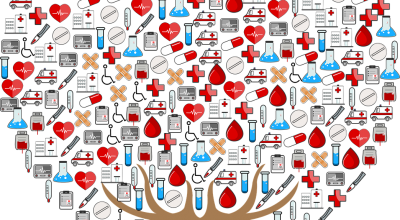
Calcium Channel Blockers (CCBs)
Calcium channel blockers are a widely used class of medications in cardiology.
They help treat high bloodBlood is composed of red blood cells, white blood cells, platelets, and plasma. Red blood cells are responsible for transporting oxygen and carbon dioxide. White blood cells make up our immune defense system. Platelets contribute to blood pressure, certain heart rhythm disorders, and chest pain caused by angina.









